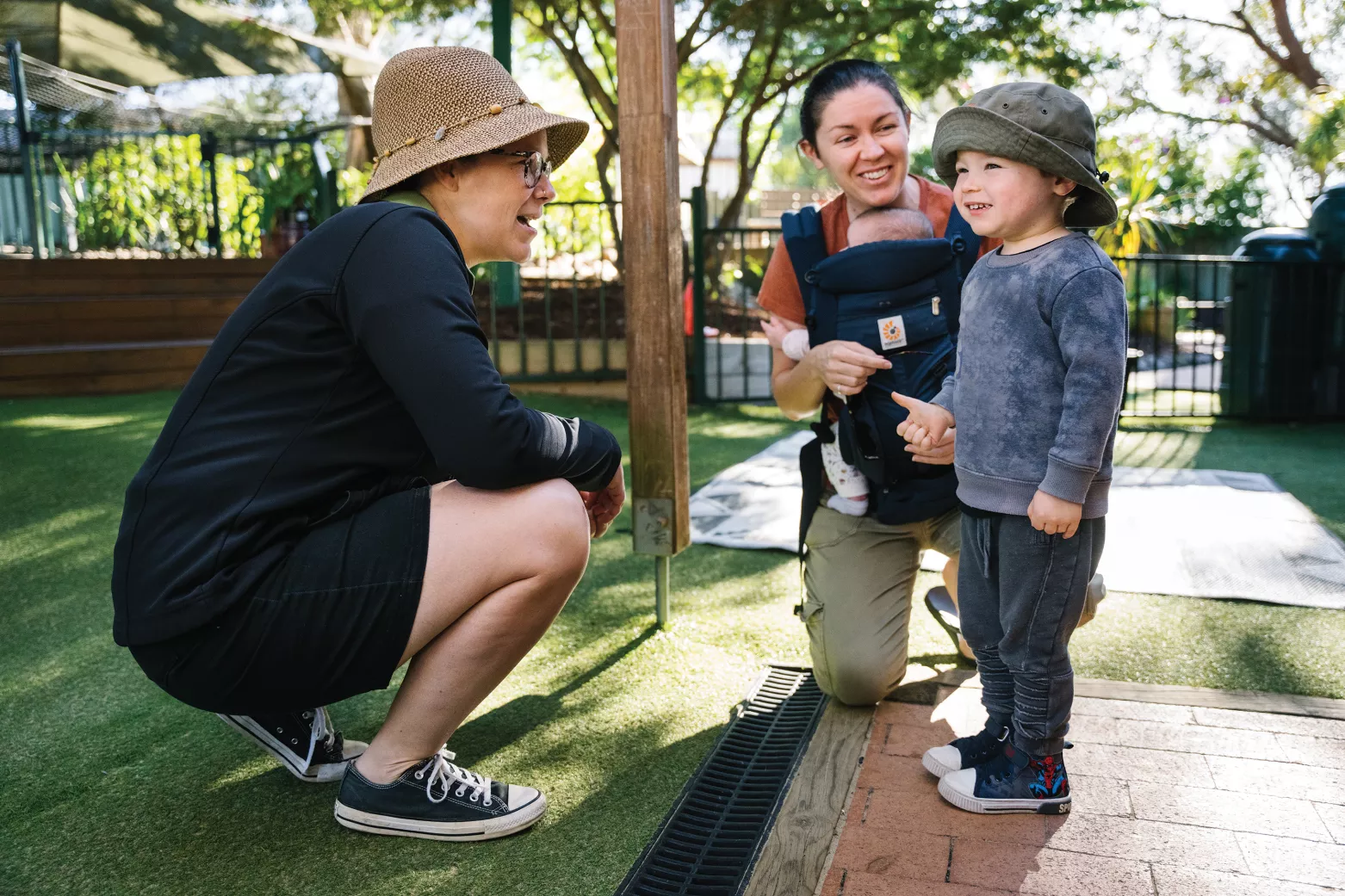- Home
- BELONGING, BEING & BECOMING - THE EARLY YEARS LEARNING FRAMEWORK
- (EYLF) PRINCIPLES
- (EYLF) Partnerships
Table of contents
- BELONGING, BEING & BECOMING - THE EARLY YEARS LEARNING FRAMEWORK
- (EYLF) INTRODUCTION
- (EYLF) A VISION FOR CHILDREN'S LEARNING
- (EYLF) ELEMENTS OF THE EARLY YEARS LEARNING FRAMEWORK
- (EYLF) EARLY CHILDHOOD PEDAGOGY
-
(EYLF) PRINCIPLES
- (EYLF) Secure, respectful and reciprocal relationships
- (EYLF) Partnerships
- (EYLF) Respect for diversity
- (EYLF) Aboriginal and Torres Strait Islander perspectives
- (EYLF) Equity, inclusion and high expectations
- (EYLF) Sustainability
- (EYLF) Critical reflection and ongoing professional learning
- (EYLF) Collaborative leadership and teamwork
- (EYLF) PRACTICES
- (EYLF) THE EARLY YEARS LEARNING FRAMEWORK PLANNING CYCLE
- (EYLF) LEARNING OUTCOMES
- (EYLF) GLOSSARY OF TERMS
- (EYLF) REFERENCES
Need help using the guide? Visit our help section.
(EYLF) Partnerships

Partnerships are based on the foundations of respecting each other’s perspectives, expectations and values, and building on the strength of each other’s knowledge and skills. Learning Outcomes are most likely to be achieved when educators work in partnership with children, families, other professionals and communities, including schools.
These partnerships recognise the diversity of families and children. In genuine partnerships, educators collaborate with children, families, other professionals, community members and teachers in schools to support children’s learning, development and wellbeing. In genuine partnerships educators:
- value and respect each other’s knowledge of each child
- value and respect each other’s contributions to and roles in each child’s life
- build trust in each other
- act with empathy and sensitivity when children are experiencing adversity
- learn about other ways of knowing, being, doing and thinking
- communicate and share information safely and respectfully with each other
- share insights and perspectives about each child with families
- acknowledge the diversity of families and their aspirations for their children
- engage in shared decision-making to support children’s learning, development and wellbeing.
Educators recognise that families are children’s first and most influential teachers. They create a welcoming and culturally safe environment where all children and families are respected regardless of background, ethnicity, languages spoken, religion, family makeup or gender. Educators, children and families collaborate in curriculum decisions to ensure that learning experiences are meaningful. Educators actively encourage such collaborations.
Ethical partnerships are formed when information is shared responsibly, and educators take safety precautions to ensure children’s right to privacy and protection. Educators know children engage with popular culture, media and digital technologies so they build partnerships with families and others to keep children safe and families aware of e-safety information.
Knowing that some children may not have experienced safe and supportive family environments, educators enact trauma informed practices. In doing so they engage with other professionals to enhance the learning, development and wellbeing of these children and as part of this educators engage in information sharing and record keeping.
Partnerships involve educators, families, other professionals, community members and teachers in schools working together for the best interests of children. These partnerships provide opportunities to explore the learning potential in everyday rituals, routines, transitions and play experiences to ensure active participation and engagement in learning is inclusive of children with diverse backgrounds, family structures and capabilities